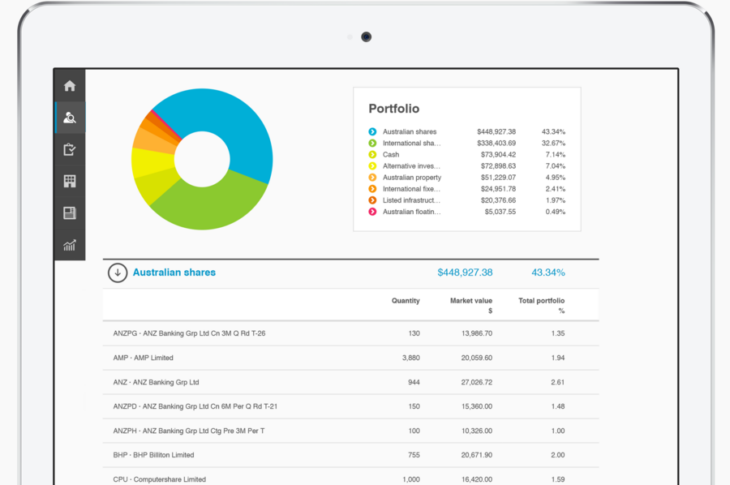How to achieve financial fitness
Anyone who wants to improve their physical health benefits, works with a personal trainer. Financial fitness is no different.
An expert trainer gets you further than you could get by yourself
When it comes to getting fit, it’s almost impossible to push yourself to the limit. That’s why so many individuals swear by their personal trainer, and that’s why professional teams use coaches.
We expect world-class sports figures to work with coaches. Whether it’s Australian Rules Football, the English Premier League, or the Olympic swimming team. Elite athletes and teams use coaches to get results they could not achieve on their own. Good coaches have insights that even professional athletes can’t see themselves.
A customised plan for your financial fitness
Financial fitness is your capacity to achieve your financial goals with the wealth you have created over the course of a successful business and professional life. It is also the wealth you build through strategic investments as you approach retirement.
In our financial lives, most of us could benefit from a customised training plan and an experienced trainer to keep us on track. Just as a fitness expert tailors a workout to suit the goals and preferences of the individual, so to does a good financial planner. A good financial planner has the knowledge and experience to match an individual or couple’s retirement goals to a plan that helps them live the lifestyle they want.
‘The way to deliver the most value to a client is through a long-term relationship,’ says ITL Financial Planning’s Shereen Churchill, a Certified Financial Planner.
‘Everyone’s situation is constantly changing, as is government legislation, investment markets, the products available, and the economy itself. There’s nothing you can set up and just set and forget.’
A set-and-forget SMSF strategy works against your financial fitness
Nick Lloyd, founder of ITL Financial Planning, meets a lot of self-made business owners, people who are sophisticated investors. They often have self-managed super funds. He understands that people want control over managing their own money, but when reviewing SMSFs he regularly sees a lot of potential for wealth creation going unrealised.
‘SMSF owners typically either have a high weighting to cash, or they’ve bought an investment property through the SMSF but haven’t given their fund much more thought than that.
‘But the whole idea is saving for retirement, so you’ve got to have a strategy in place in order to fund your retirement plan.’
The importance of your goals to financial fitness
Investment decisions become much easier when you’re sticking to a plan that has been tailored to your personal circumstances and future goals.
‘If you don’t have a coherent plan, then your SMSF will become fairly haphazard,’ Nick explains. ‘Often people hold onto some investments for way too long, or they’re sitting on large amounts of cash because they haven’t had the time to decide how to invest the money. Similarly, people miss out on taking advantage of the annual super contribution limits as they just haven’t had time to do it or didn’t realise they had a limit.’
Compliance: knowing the rules of the game is part of being financially fit
A good financial planner knows how to maximise different pension strategies and is always up to date with the rules around superannuation and tax, which are constantly changing.
‘For example, it’s only in the last few years that a SMSF investment strategy must include the insurance needs of its members,’ Shereen says.
‘And last year, with all the new superannuation rules, pension strategies had to change too. So even though you might have set things up correctly, the ground can shift underneath you.’
ITL Financial Planning is always working to make sure that clients’ SMSFs remain compliant.
The long-term value of working with a financial planner
‘The first time I meet with a client, their future life events are not always foreseeable,’ says Nick Lloyd. ‘That’s why we need to meet regularly so we can review what’s important to the client and plan for it.
‘The questions I ask are not just financial, but lifestyle-related, so we can develop a plan that is a balance between structure and flexibility: how much do they want to draw on, and what’s the plan to fund it? Clients might be worried they won’t have enough to fund their lifestyle, with low interest rates and inflation eating up money left in safe cash investments.’
Sometimes clients want a lifestyle change such as downsizing their main residence or moving interstate. When that happens, Nick and Shereen examine what’s the best use of the money from the sale of the property; or talk through the client’s desire to buy another property and figure out the most tax-effective way to do it.
‘Sometimes they should borrow for the short-term to make the investment, using equity, because they will be better off in the longer term by liquidating their assets over time,’ Nick explains.
‘We’re always reviewing our clients’ financial and investment strategies to maximise their position.
A long life is best enjoyed in the maximum potential physical and financial health
A long-term relationship with an expert financial planner like ITL Financial Planning makes an enormous difference over the long term to your financial fitness.
‘By having regular meetings and making small changes, we can deliver incremental value over time and it can compound,’ says Shereen.
ITL Financial Planning and its advisers are Authorised Representatives of Fortnum Private Wealth Ltd ABN 54 139 889 535 AFSL 357306. www.fortnum.com.au. Any information on this website is general advice only and does not take into account any person's objectives, financial situation or needs. Please consider your own circumstances and consider whether the advice is right for you before making a decision. Always obtain a Product Disclosure Statement (if applicable) to understand the full implications and risks relating to the product and consider the Statement before making any decision about whether to acquire the financial product.

